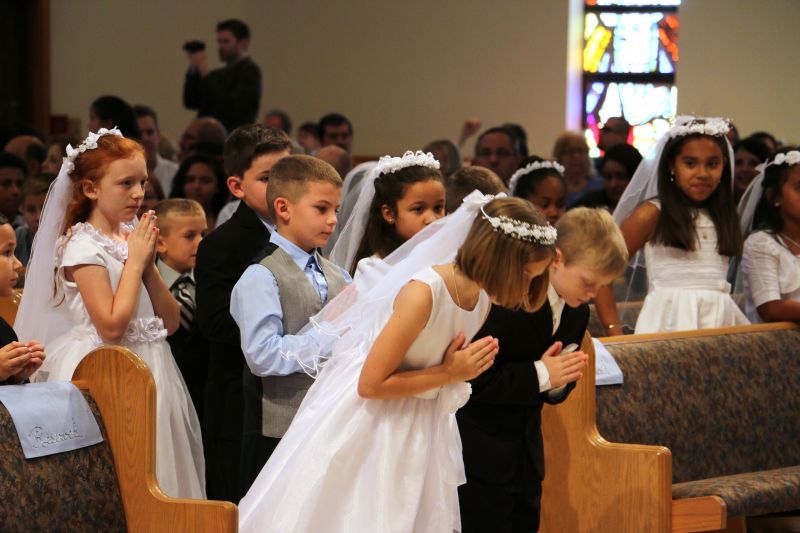Eucharist
The other sacraments, and indeed all ecclesiastical ministries and works of the apostolate, are bound up with the Eucharist and are oriented toward it. (CCC 1324)
Sacramental Preparation for Children
First Holy Communion
At Nativity, preparation for First Holy Communion is a "freestanding" program and requires registration for both Parish and NCS School families. Invitations to prepare for First Reconciliation and First Holy Communion are sent to eligible children in September before the 1st Holy Communion.
Call the Faith Formation Office at 813.689.9101 for more information about how we prepare our families and children at Nativity for this important sacrament.
For information regarding adult preparation for the reception of the Eucharist, please get in touch with Deacon Joe Allison - Director of Faith Formation.
Guidelines for Reception of Communion
For the benefit of visiting friends and families, the following guidelines are offered to help with decisions regarding the reception of Holy Communion.
For Catholics:
The National Conference of Catholic Bishops offers the following for practicing Catholics: “In order to be properly disposed to receive Communion, communicants should not be conscious of grave sin, have fasted for an hour, and seek to live in charity and love with their neighbors. Persons conscious of grave (mortal) sin must first be reconciled with God and the Church through the Sacrament of Penance (Confession).
For our fellow Christians:
We welcome you to the celebration of the Eucharist as our brothers and sisters. For all practical purposes, non-Catholics are excluded from reception of communion at a Catholic Church. The National Conference of Catholic Bishops says: “Reception of the Eucharist by Christians not fully united with us would imply a oneness which does not yet exist, and for which we must all pray.”
For those not receiving Communion:
Those unable to receive communion may simply remain seated while others go forward; or if you wish, you may come forward for a blessing. (If you come forward, please indicate that you wish to have a blessing by crossing your arms over your chest, hands on shoulders.) We ask that you be with us in prayer for the peace and unity of the human family.


